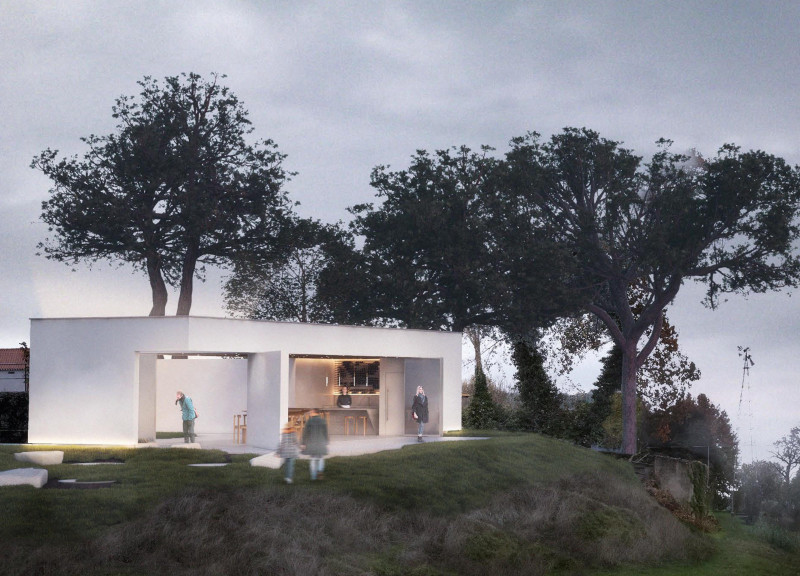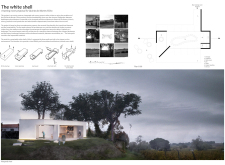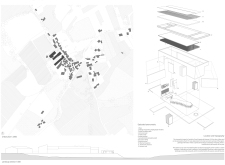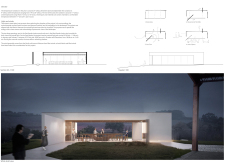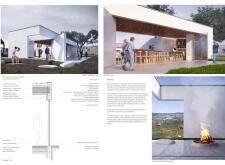5 key facts about this project
The project, known as "The White Shell," is an architectural design for a tasting room located in the Lisbon region of Portugal, specifically for Quinta do Monte d’Oiro. This facility serves as a dedicated space for wine tasting, emphasizing visitor interaction with the local landscape and the winemaking process. The design aims to integrate the structure seamlessly into its surroundings, enhancing the sensory experience of its users.
The architectural layout includes a central tasting area, a fireplace, a terrace, and a grape treading space. These components cater to both functional and aesthetic needs, ensuring that visitors can engage with the wine while being immersed in the natural beauty of the vineyards. The tasting room encourages a communal atmosphere, with a long table designed for group experiences, promoting social interaction among guests.
Unique Design Approaches for Enhanced Experience
A standout feature of "The White Shell" is its emphasis on blending with the natural environment. The use of panoramic glazing for the façade provides extensive views of the vineyards while maintaining thermal comfort through strategic positioning. This design choice allows for a connection between indoor and outdoor spaces while maximizing natural light.
The material selection prioritizes sustainability without compromising on aesthetics. The use of ecological concrete, sourced from recycled materials, and aluminum structures highlights a commitment to environmentally responsible design. Additionally, triple-glazing windows contribute to energy efficiency and reduce the carbon footprint of the building. The inclusion of wood elements adds warmth to the internal environment, fostering a welcoming atmosphere.
Incorporating Renewable Energy Strategies
The project also employs various renewable energy strategies aimed at reducing overall energy consumption. The architectural design considers local climatic conditions, utilizing natural ventilation to regulate indoor temperatures. The careful orientation of the building takes advantage of sunlight, ensuring that the interior remains comfortable throughout the year.
Each element of "The White Shell" has been meticulously designed to enhance user experience while promoting the local viticulture. The architectural concept encourages exploration and appreciation of the surrounding landscape, positioning the tasting room not just as a functional space but as an experience that invites visitors to engage with the wine-producing heritage of the region.
For more detailed insights into the architectural plans, sections, and overall design ethos of "The White Shell," interested readers are encouraged to explore the comprehensive project presentation. This will provide a more in-depth understanding of the architectural ideas and design principles that define the project.


